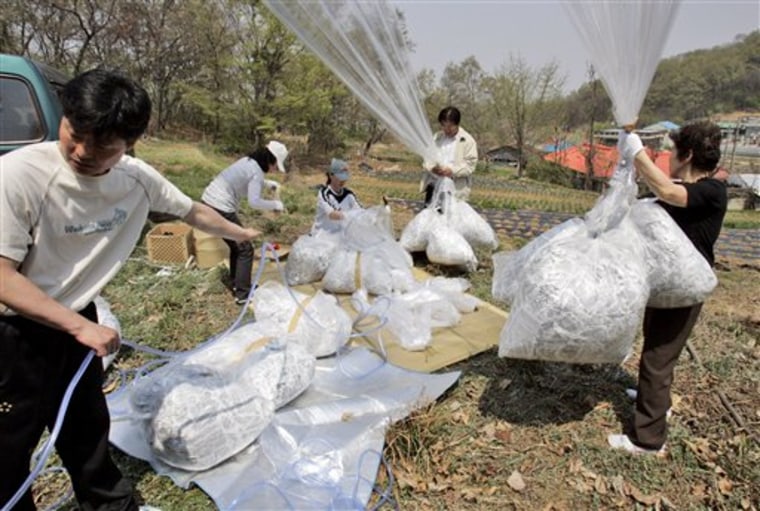A group of North Korean defectors sent helium balloons carrying some 60,000 leaflets condemning North Korean leader Kim Jong Il to their homeland from a South Korean island on Saturday.
The leaflets also contained Bible verses as well as $1 bills in an apparent attempt to lure North Koreans into picking them up.
"Our purpose is to urge North Koreans to bring down the dictatorship with their hands," said Park Sang-hak, the organizer of the campaign, as seven other defectors released balloons on Ganghwa island, near the heavily fortified western border.
Park said the airborne propaganda could reach as far as the North's capital, Pyongyang.
Campaign began in 2005
Some 2 million leaflets have been sent to the North via balloons since the campaign first began in 2005, according to Park, who defected in 2000.
Some North Korean defectors have said leaflets and outside radio programs prompted them to flee after learning their impoverished country was not a paradise — as claimed by Kim's regime — and they could enjoy freedom in foreign countries.
"Freedom is not free. Let us topple Kim Jong Il's 'songun' dictatorship and liberate North Koreans," the leaflet reads.
Kim's policy of "songun," or military-first, has channeled much of the country's scarce resources to the army.
Fierce propaganda battles
South Korean Unification Ministry spokesman Kim Ho-nyeon declined to comment on whether the leaflet campaign could harm inter-Korean relations.
For decades, the two Koreas waged fierce propaganda battles using leaflets, loudspeakers and radio broadcasts. Such official efforts have largely subsided since a historic inter-Korean summit in 2000.
North Korea's government remains intolerant of any criticism of Kim, who enjoys a personality cult that also surrounded his late father, North Korea founder Kim Il Sung.
